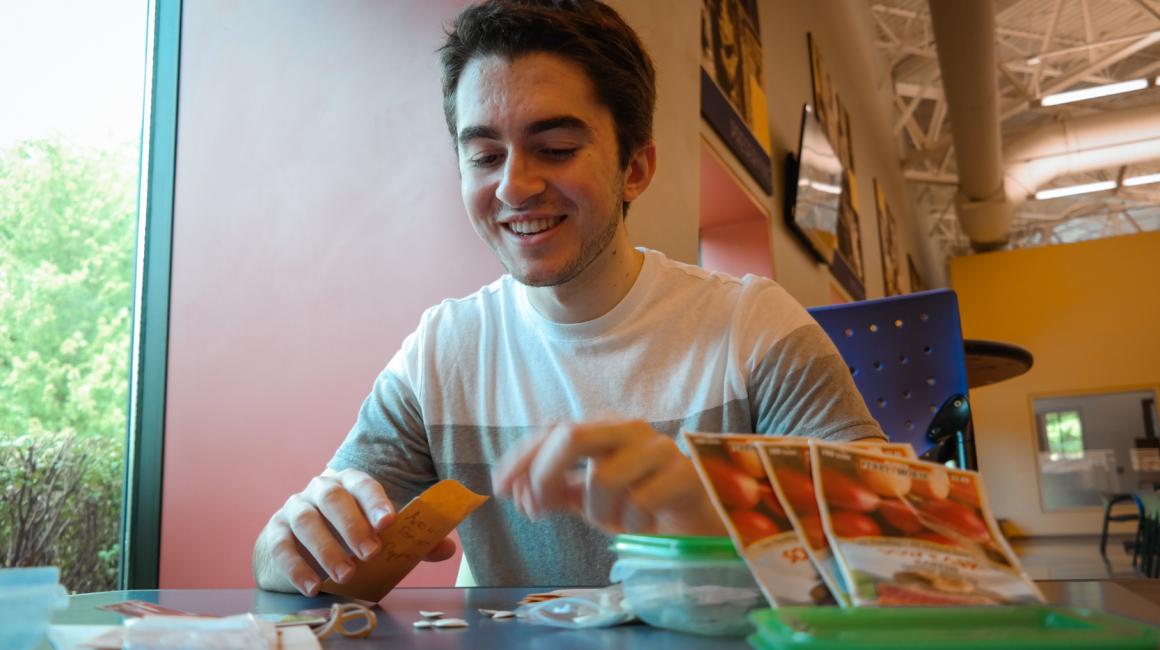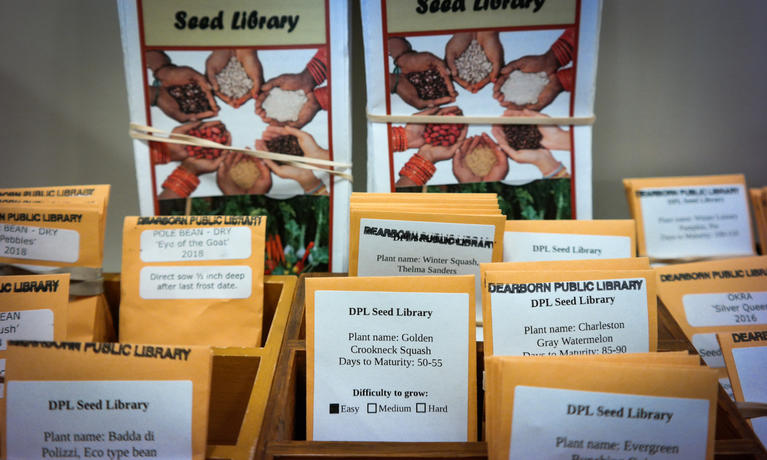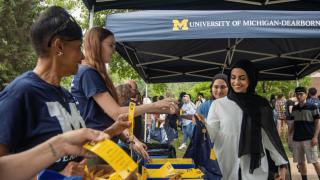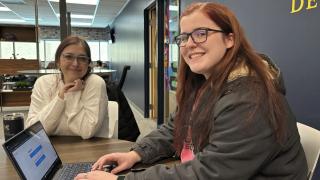
If you haven’t visited your local library recently, you might be surprised at what all you can haul away from the checkout desk. You’ll still find all the library staples, of course, like books, movies and music. But many local branches have started lending non-media items like telescopes, camping gear and power tools. One Ann Arbor location even offers everything you’ll need for a game of Kubb—a traditional Scandinavian lawn game that’s sort of a hybrid between bowling and horseshoes.
This spring, the Dearborn Public Library’s Henry Ford Centennial branch got in on the unusual items trend with a program that offers patrons free garden seeds. Walk up toward the second floor reference desk, look to your right, and you’ll spot a simple, two-drawer wooden cabinet that houses the branch’s new “seed library.”

The idea is pretty simple: Anyone from the community can browse through the hundreds of small, yellow, hand-stuffed seed packets and take whatever they want to plant in their home gardens. It’s totally free. You don’t even have to have a library card.
The project is one of the latest from Healthy Dearborn—a community coalition that’s promoting healthy living in the greater Dearborn community. The effort has drawn the talents and volunteer hours of dozens of UM-Dearborn students, staff and faculty—including for the new seed library, an idea university volunteers and their library partners cooked up to promote access to fresh foods.
“It’s a really fun concept, but we were kind of anxious to see if people would jump in and start using it,” said Patty Podzikowski, who helps look after the seed library from her post at the reference desk. “But Dearborn has this newsletter—The Back Fence—that goes out to every single resident. And in March, right there on the front page, was a story about the seed library. When that hit people's mailboxes, our phone just blew up. And we didn’t even have it officially up and running yet.”
At that point, Podzikowski called in the rest of the seed library team, which included a small group of students and staff from UM-Dearborn and a student from Wayne State University. Within just a few days, they packaged, labeled and stocked the library with more than 100 different kinds of flower and vegetable seeds—all of which were non-GMO and non-hybrid.
That last fact is important to one of the other things the project hopes to promote: seed saving. In true library fashion, the team ideally wants seed library patrons to “borrow” the materials and then “return” them for others to use. With seeds, that will mean taking them from the library in early spring and summer; then, in the fall, gardeners will collect and return seeds from the plants they’ve grown in order to replenish the supply. This kind of seed saving is easiest to do with non-hybrid varieties, which produce seeds and plants that are the same from year to year.
“I think what makes the seed library so interesting is that, if we can get people to participate in the seed saving part of it, it’s essentially self-sustaining,” said UM-Dearborn senior Adam Khanafer. “All we need is the initial input of those seeds we distributed in year one, and from there, the participants can keep it going sort of indefinitely.”
While Khanafer said they’re still probably a few years away from that goal, the team wants to support any seed savers who want to start this season. There’s already some basic takeaway literature on seed saving right at the seed library, along with a list of titles you can check out from the Dearborn Public Library. But given the level of interest, the team is also planning some community workshops, which will not only teach more advanced seed saving techniques, but will allow the gardeners who have rallied around this project to meet each other.
In the meantime, Khanafer will be adding more fuel to the first-year fire. He said the seed library has been such a hit, the cabinet full of little yellow envelopes is already due for a mid-summer restocking.





